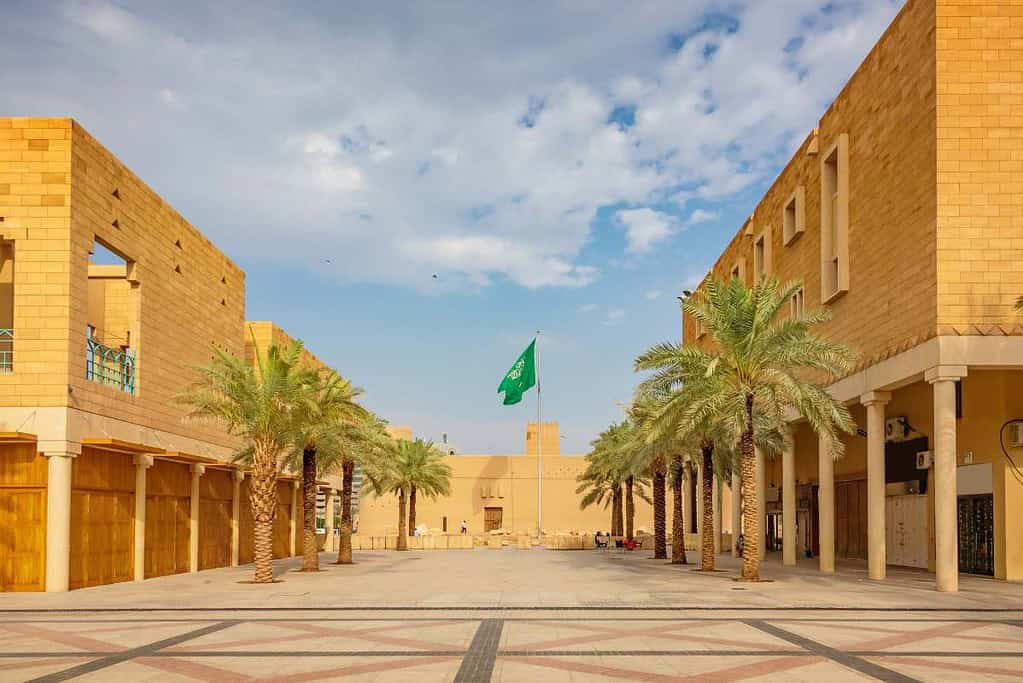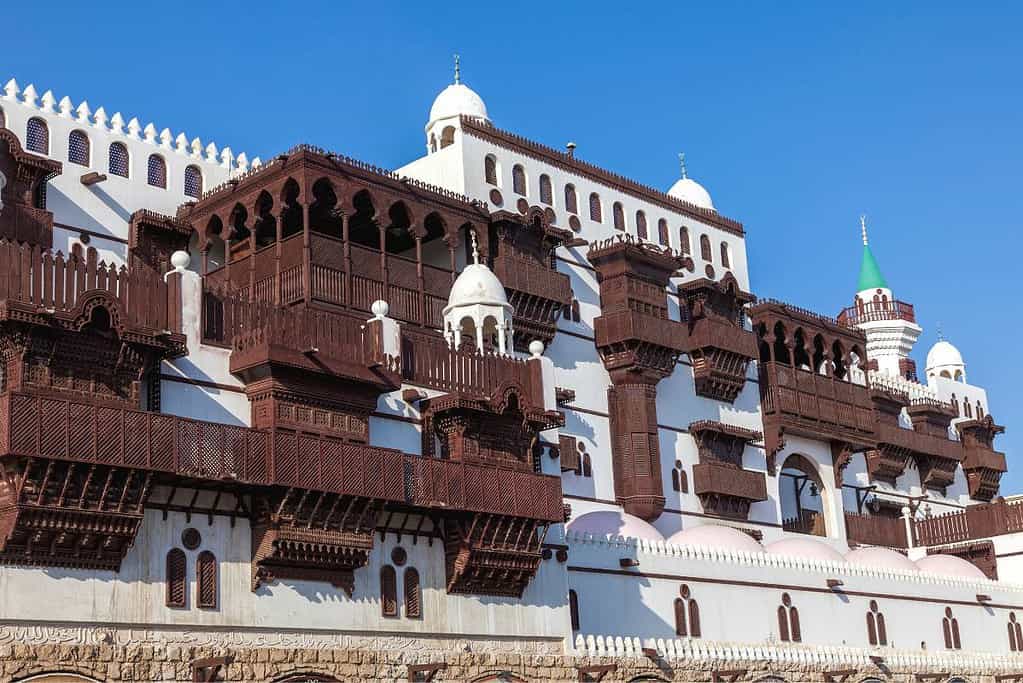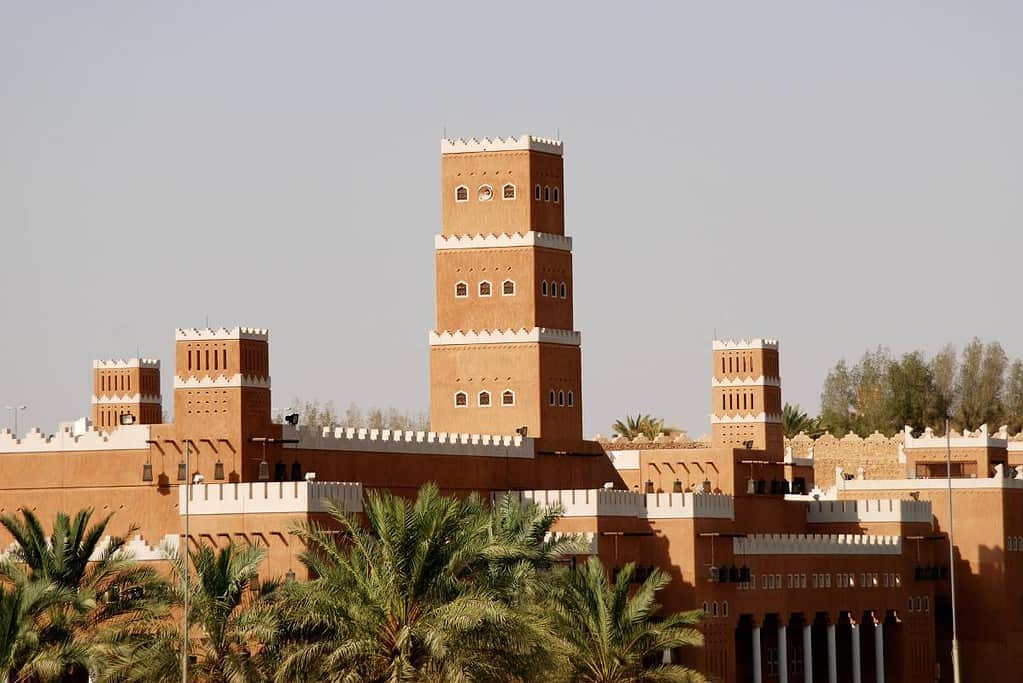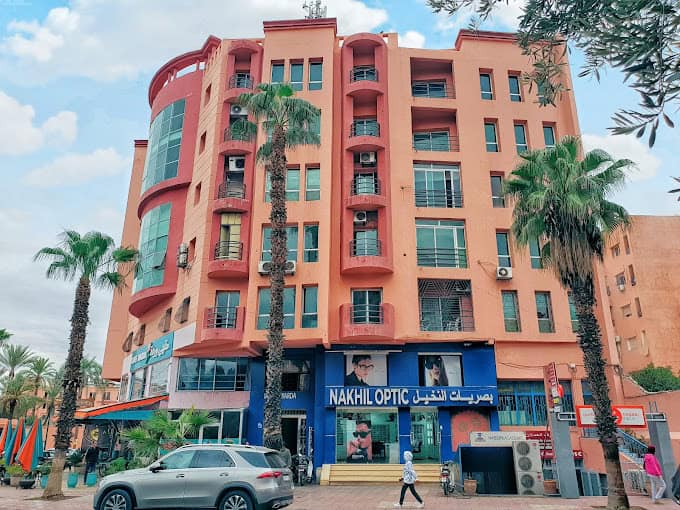Table of Contents
Planning a trip to Saudi Arabia but not sure if it’s safe? Learn the facts about safety in Saudi Arabia from experts to make an informed decision. Get safety tips and know what to expect!
When it comes to travel safety, many people are uncertain about a trip to Saudi Arabia. In order to make an informed decision, it’s important to learn all the facts and be aware of potential risks. From political and social issues to advice on how best to travel, here is what you need to know about safety in Saudi Arabia.
Crime rate statistics Saudi Arabia and other countries

Saudi Arabia is a country that has gained much attention over the years for its unique culture and customs. As a result, tourists often wonder whether it is safe to visit the country, and what they should be aware of before they go.
This article will explore the question of whether Saudi Arabia is safe for tourists, focusing on key topics such as country laws, cultural norms, and specific issues that women and travelers may encounter.
Additionally, it will touch on the sensitive topic of the death penalty in Saudi Arabia, as well as how religion plays a significant role in daily life and public policy.
By the end of this article, readers will have a better understanding of what to expect when visiting Saudi Arabia and learn if Saudi Arabia is a dangerous country to travel, and how to stay safe while enjoying all the country has to offer.
On this page and in order to create a full and comprehensive evaluation of whether is Saudi Arabia safe for tourists or other people in general, we will focus on the following:
- Tackling Urban Crime in Saudi Arabia: How the Government is Working to Keep Cities Safe
- Gender Safety in Saudi Arabia: How Recent Reforms are Impacting Women’s Rights and Security
- Behind the Wheel in Saudi Arabia: Improving Road Safety in the Kingdom
- Beyond the Sandstorms: Understanding Natural Hazards and Safety in Saudi Arabia
- Cultural Safety in Saudi Arabia: Navigating Cultural Differences for a Safe and Enjoyable Experience
Is Saudi Arabia Safe for Tourists?
Tourists should be aware of the laws and cultural norms in Saudi Arabia to avoid facing prison and the death penalty. Here are some things to keep in mind:
- Respect religious customs and practices: Saudi Arabia is a deeply religious country and it’s important to show respect for local customs and practices. This includes dressing conservatively, avoiding public displays of affection, and refraining from alcohol consumption.
- Don’t criticize the government: Saudi Arabia has strict laws against criticism of the government, so avoid making any negative comments about the country or its leaders.
- Avoid drugs: Possession and trafficking of drugs are serious crimes in Saudi Arabia, with harsh penalties including the death penalty. Avoid bringing any drugs into the country and don’t engage in drug-related activities while you’re there.
- Don’t engage in homosexual activities: Homosexuality is illegal in Saudi Arabia and can result in severe penalties including imprisonment and the death penalty.
- Be mindful of the law: Make sure you’re aware of all the laws and regulations in Saudi Arabia, including traffic laws and restrictions on photography. Ignorance of the law is not a valid excuse for breaking it.
Saudi Arabia is generally considered to be a safe country for tourists. The government places a strong emphasis on ensuring the safety and security of visitors, and has implemented various measures to maintain this. In fact, Saudi Arabia is consistently ranked as one of the safest countries in the world.
That being said, tourists should still take the usual precautions that they would in any foreign country. This includes being aware of their surroundings, not leaving their belongings unattended, and avoiding any areas that are known to be unsafe. In addition, tourists should be respectful of local customs and traditions, especially with regards to dress and behavior in public.
Overall, while tourists should take necessary precautions and be mindful of local laws and customs, they can feel generally safe and secure while visiting Saudi Arabia.
10 Actions That Can Result in the Death Penalty in Saudi Arabia
It is important for tourists traveling to Saudi Arabia to familiarize themselves with the country’s laws and cultural norms. Read more about Death Penalty in Saudi Arabia.
Safety in Saudi Arabia
Saudi Arabia, a Middle Eastern country located on the Arabian Peninsula, has seen significant progress in the area of safety in recent years. According to the World Bank’s Worldwide Governance Indicators, Saudi Arabia’s ranking for the “Rule of Law” indicator has improved from 45.6 in 2013 to 61.7 in 2019, indicating an improvement in the quality of law enforcement, absence of corruption, and respect for due process.
Major Saudi Cities
- Riyadh – Population: 8.3 million
- Jeddah – Population: 4.2 million
- Mecca – Population: 1.7 million
- Medina – Population: 1.3 million
- Hofuf – Population: 1.1 million
- Ta’if – Population: 955,300
- Dammam – Population: 903,000



Also, and taking into account tourist safety, it’s important to understand the country’s political situation. Keep up on the current issues and be aware of any political unrest or protests that could put you in danger. Be sure to follow local laws and regulations while in Saudi Arabia, as violations may lead to prosecution or even deportation.
| Safety concern | Saudi Arabia | United States |
|---|---|---|
| Level of crime | Very low | Moderate |
| Crime increasing in the past 3 years | Moderate | High |
| Worries about home being broken into and things being stolen | Low | Moderate |
| Worries about being mugged or robbed | Low | Moderate |
| Worries about car being stolen | Low | Moderate |
| Worries about things being stolen from car | Low | Moderate |
| Worries about being attacked | Low | Moderate |
| Worries about being insulted | Low | Moderate |
| Worries about physical attacks due to skin color, ethnicity, gender, or religion | Very low | Low |
| Problem with people using or dealing drugs | Low | High |
| Problem with property crimes such as vandalism and theft | Low | Moderate |
| Problem with violent crimes such as assault and armed robbery | Very low | Moderate |
| Problem with corruption and bribery | Low | Moderate |
In general, the United States has higher crime rates than Saudi Arabia across various categories, including burglary, total crimes, and violent crimes such as homicides, murders, and robberies. The United States also has a higher rate of drug use, with a much higher percentage of annual cannabis use and opiates use.
However, Saudi Arabia has a higher rate of capital punishment, with the most recent execution year being 2014 in both countries. It’s important to keep in mind that these comparisons are based on available data, which can vary depending on the sources and methods used to collect and report the information.
Saudi Arabia Safety Reviews




Road safety in Saudi Arabia
In terms of road safety, the number of traffic accidents has decreased by 20% from 2017 to 2020, with the introduction of new laws, regulations, and awareness campaigns. According to the General Authority for Statistics, the mortality rate due to traffic accidents has also decreased by 31.6% in 2020 compared to the previous year.
Work safety in Saudi Arabia
Moreover, the Kingdom has also been working to improve workplace safety. In 2018, the Ministry of Labor and Social Development implemented a program to reduce work-related injuries and fatalities, which led to a 33% decrease in work-related accidents in the first half of 2020 compared to the previous year.
Safety for Women Traveling to Saudi Arabia

Contrary to popular belief, women can travel to Saudi Arabia alone and do not need a guardian to travel around the country. While the idea of needing a guardian for women is more of a cultural belief than a legal one, there are no restrictions on women traveling alone in Saudi Arabia. A woman traveling to Saudi Arabia is free to explore the country’s many beautiful cities, natural landscapes, and cultural attractions without any restrictions on their movement.
However, it is important to note that women traveling alone in Saudi Arabia may still encounter some cultural norms that differ from those in the West. It is advisable for female travelers to dress modestly and respectfully, particularly in public places. This is not only a sign of respect for Saudi culture but can also help to prevent unwanted attention from men. While the idea of traveling alone as a woman in Saudi Arabia may seem daunting, the country is generally very safe, with low crime rates and a welcoming culture towards foreign visitors.
At RJ Travel, we understand that traveling to Saudi Arabia as a woman may raise concerns about safety and security. That’s why we have put strict measures in place to ensure the safety and well-being of all our clients, particularly our female clients.
Our guides in our tours in Saudi Arabia are ultra-qualified and have extensive experience navigating the country and its culture, and this makes Saudi Arabia safe for women. They understand cultural sensitivities and will ensure that our female clients are treated with respect and dignity. Our guides are also trained in emergency procedures and are equipped to handle any situations that may arise. The safety and well-being of our clients are our top priority. We ensure that our guides are fully aware of this and are dedicated to ensuring that we make Saudi Arabia safe for female travelers and create an enjoyable experience for all our clients.
General ideas about safety in Saudi Arabia for females and female tourists:
- Women can travel to Saudi Arabia alone and do not need a guardian to travel around the country.
- Women do not need to wear burqas or headscarves. Decent and long outerwear is enough, and bikinis are allowed on private beaches.
- Harassment is not a specific issue in Saudi Arabia, and women can hang out with unrelated men.
- Religious police do not have any authority, and it is safe to travel to Saudi Arabia as a solo female.
- Saudi Arabia is a diverse country with many different cultures and traditions, making it a destination for all types of female travelers.
FAQs: Solo Female Travel in Saudi Arabia
Is it safe for women to travel to Saudi Arabia alone?
Yes, it is generally safe for women to travel to Saudi Arabia alone. While the country has a reputation for being conservative and patriarchal, women are treated with respect and hospitality. Of course, as with any destination, it is important to take precautions and be aware of cultural norms and customs.
Do women need a guardian to travel to Saudi Arabia?
No, women do not need a guardian to travel to Saudi Arabia. While the concept of female independence may not be widely understood or accepted in some areas, there is no law requiring women to have a guardian in order to travel or move about the country. It is important to remember that cultural expectations and practices may vary depending on the region and individual circumstances.
What should women wear when traveling to Saudi Arabia?
Women are expected to dress modestly when traveling to Saudi Arabia. This means wearing clothing that covers the arms, legs, and chest. While an abaya (a long, loose robe) is not required, it is a common and practical garment for women to wear in public places. Additionally, women should bring a scarf or shawl to cover their hair as a sign of respect.
Are there any restrictions on what women can do in Saudi Arabia?
There are some restrictions on what women can do in Saudi Arabia, but these are gradually changing as the country modernizes and opens up to the world. For example, women can now drive, attend sports events, and participate in the workforce. However, there are still some limitations on women’s freedom of movement, particularly in public places and conservative areas.
What should women know about cultural norms and customs in Saudi Arabia?
Women traveling to Saudi Arabia should be aware of cultural norms and customs, such as the importance of hospitality, respect for religion, and adherence to dress codes. It is also important to be familiar with Islamic customs, such as praying and fasting during Ramadan. Additionally, women should be prepared to interact with men in a professional and respectful manner, as well as to navigate the gender segregation that exists in many public places.
Culture in Saudi Arabia

Saudi Arabia is a country with a rich and unique culture, shaped by its history, geography, and Islamic religion. It is a conservative society that places a strong emphasis on family, religion, and hospitality. The culture is characterized by its traditional dress, music, dance, and cuisine. The basis of Saudi culture is the Islamic religion, which is deeply ingrained in all aspects of daily life, from family values to social interactions. Saudis are proud of their heritage and traditions and are keen to share them with visitors.
Saudi Arabia has a unique social structure that is based on the tribal system, which is still prevalent in some parts of the country. It is also a hierarchical society, with respect for authority and age. Family is at the center of Saudi culture, and extended families are close-knit and supportive. Hospitality is a cornerstone of Saudi culture, and visitors can expect to be welcomed warmly and treated with respect and generosity.
Despite the conservative nature of Saudi society, it is also a modern and rapidly developing country, with a vibrant and dynamic culture. Visitors can experience a range of cultural activities, from traditional souks and festivals to modern art galleries and museums. With its rich history and diverse cultural offerings, Saudi Arabia is a fascinating and welcoming destination for tourists.
Experience the rich cultural traditions of Saudi Arabia and immerse yourself in the warmth and hospitality of its people, creating memories that will last a lifetime.
Here are ten cultural traditions and norms in Saudi Arabia that foreigners may not know about:
- Dress code: Saudi Arabia has a strict dress code for men and women in public places. Men are required to wear full-length trousers and long-sleeved shirts, while women are required to cover their hair and wear an abaya (a loose, black garment that covers the entire body).
- Gender segregation: In many public places, including restaurants and public transportation, there is strict gender segregation. Men and women are expected to sit separately and not interact with each other.
- Greeting customs: It is customary to greet others with the phrase “Assalamu Alaikum,” which means “peace be upon you.” When greeting someone of the opposite gender, it is important to keep a respectful distance.
- Mealtime customs: It is common to eat with the right hand only and to share food from a communal dish. It is also considered polite to refuse food or drink at first offer, and then accept after the offer has been repeated.
- Hospitality: Saudi Arabians are known for their hospitality and generosity towards guests. It is common to be offered tea, coffee, and dates upon entering someone’s home.
- Religious practices: Islam is the official religion of Saudi Arabia, and daily prayer is an important aspect of life. During prayer times, businesses and shops may close temporarily.
- Family values: Family is highly valued in Saudi Arabian culture, and many social activities and events revolve around family gatherings.
- Business customs: In business settings, it is important to exchange business cards and engage in small talk before getting down to business. It is also important to be respectful and avoid being confrontational.
- Ramadan customs: During the holy month of Ramadan, Muslims fast from sunrise to sunset. Non-Muslims are expected to respect this practice and avoid eating or drinking in public during fasting hours.
- Social media: Social media is a popular form of communication in Saudi Arabia, with many people using platforms like WhatsApp and Snapchat to stay in touch with friends and family. However, it is important to be aware of the country’s strict laws regarding online content and speech.
Tourists Faux Pas in Saudi Arabia
- Public display of affection: PDA is considered inappropriate and disrespectful in Saudi Arabia. It is important for foreigners to avoid any physical contact that could be seen as intimate or affectionate, even between spouses.
- Dress code: Saudi Arabia has a strict dress code that must be followed, especially for women. Women are required to cover their hair and wear loose-fitting, full-length clothing that covers their arms and legs. Men are also expected to dress conservatively. It is important for foreigners to respect these customs and dress appropriately when in public.
- Eating with the left hand: In Saudi Arabia, it is considered rude to eat with the left hand, as it is associated with uncleanliness. It is important for foreigners to use their right hand when eating or passing food to others.
- Disrespecting Islam: Islam is the dominant religion in Saudi Arabia, and it is considered disrespectful to criticize or insult the religion or the Prophet Mohammed. Foreigners should be respectful of Islamic customs and avoid any behavior that could be seen as disrespectful.
- Pointing with the foot: In Saudi Arabia, pointing with the foot is seen as rude and disrespectful. It is important for foreigners to avoid pointing with their feet or touching anything with their feet.
- Showing the soles of your feet: In Saudi Arabia, showing the soles of your feet is considered disrespectful, especially when in the presence of others. It is important for foreigners to avoid crossing their legs or sitting in a way that exposes the soles of their feet.
- Interrupting prayers: Prayer is an important part of daily life in Saudi Arabia, and it is considered disrespectful to interrupt or disrupt someone who is praying. It is important for foreigners to be aware of the prayer schedule and avoid any behavior that could be seen as disrespectful during prayer time.
To avoid committing these cultural faux-pas, foreigners should take the time to learn about Saudi Arabian customs and traditions before traveling to the country. They should also be respectful of the local culture and customs and make an effort to dress conservatively, avoid public displays of affection, and be mindful of their behavior in public. By being respectful of local customs, foreigners can have a more enjoyable and rewarding experience in Saudi Arabia.
Religion in Saudi Arabia

It’s important to respect local religion and religious culture while visiting Saudi Arabia. Be aware that because of religion, there are certain standards of dress and behavior expected, especially in public – such as no public displays of affection. Women should also remember to cover up with clothing and avoid wearing anything revealing in an effort to be respectful.
Quick facts on religion in Saudi Arabia
- Islam is the official and dominant religion in Saudi Arabia.
- The two holiest cities in Islam, Mecca and Medina, are located in Saudi Arabia.
- The country follows a strict interpretation of Sunni Islam, known as Wahhabism.
- Friday is the holy day in Islam and Friday prayers are mandatory for all Muslim men in Saudi Arabia.
- The Islamic calendar is used for religious purposes in Saudi Arabia, which is based on the lunar cycle and has 12 months of 29 or 30 days.
Evolution of Islam in Saudi Arabia timeline
CE stands for “Common Era”.
- 610 CE: The Prophet Muhammad receives his first revelation in Mecca.
- 622 CE: The Hijra or migration of the Prophet Muhammad from Mecca to Medina.
- 630 CE: The Prophet Muhammad conquered Mecca and established Islam as the dominant religion in the region.
- 661-750 CE: The Umayyad and Abbasid caliphates established Islam as a dominant political and cultural force in the Arabian Peninsula and beyond.
- 1744 CE: The rise of the first Saudi state under the leadership of Muhammad bin Saud.
- 1932 CE: The unification of Saudi Arabia under the leadership of King Abdulaziz Al Saud.
- 1953 CE: King Saud succeeded King Abdulaziz Al Saud as the second monarch of Saudi Arabia.
- 1979 CE: The Grand Mosque seizure in Mecca by extremist militants.
- 2015 CE: King Salman bin Abdulaziz Al Saud succeeds King Abdullah bin Abdulaziz Al Saud as the king of Saudi Arabia.
Treating Foreigners with Kindness and Hospitality in Islam
One of the most frequently cited verses in the Quran that emphasizes the importance of treating foreigners with kindness and hospitality is found in Surah Al-Hujurat, Verse 13:
يَـٰٓأَيُّهَا ٱلنَّاسُ إِنَّا خَلَقْنَـٰكُم مِّن ذَكَرٍۢ وَأُنثَىٰ وَجَعَلْنَـٰكُمْ شُعُوبًۭا وَقَبَآئِلَ لِتَعَارَفُوٓا۟ ۚ إِنَّ أَكْرَمَكُمْ عِندَ ٱللَّهِ أَتْقَىٰكُمْ ۚ إِنَّ ٱللَّهَ عَلِيمٌ خَبِيرٌۭ ١٣
“O mankind, indeed We have created you from male and female and made you peoples and tribes that you may know one another. Indeed, the most noble of you in the sight of Allah is the most righteous of you. Indeed, Allah is Knowing and Acquainted.”
Surah Al-Hujurat
This verse highlights the importance of recognizing the common humanity that binds all people together, regardless of their ethnic or cultural differences. It emphasizes the idea that diversity is a blessing from God, and that the best way to celebrate it is to extend kindness, respect, and hospitality towards all people, especially foreigners. In Saudi Arabia, this passage could serve as a reminder of the country’s obligation to welcome and respect visitors from around the world.
Death Penalty in Saudi Arabia

The death penalty in Saudi Arabia is a controversial issue that has drawn attention from around the world. While this punishment is considered to be extreme by many, it is an integral part of Saudi Arabia’s legal system, which is based on Islamic law. For tourists visiting the country, it is important to understand how this system works, what actions can lead to the death penalty, and how to avoid getting into trouble with the law.
First and foremost, it’s important to understand that Saudi Arabia’s strict laws and punishments are generally not aimed at tourists or foreigners. As long as you respect the country’s culture, customs, and laws, you are unlikely to run afoul of the authorities. Some common behaviors that are acceptable in other countries, such as public displays of affection, drinking alcohol, or wearing revealing clothing, are considered serious offenses in Saudi Arabia and could result in arrest or other legal consequences.
It’s also important to understand that the death penalty in Saudi Arabia is reserved for the most serious crimes, such as murder, drug trafficking, and terrorism. While the punishment is carried out in public, it is rare and is usually reserved for Saudi citizens or foreign residents who have violated the law. As a tourist, it is highly unlikely that you would be subject to the death penalty. However, it’s important to be aware of the cultural and religious sensitivities of the country and to act accordingly, so as not to cause offense or get into trouble with the law. By being respectful and following the rules, tourists can safely and enjoyably experience all that Saudi Arabia has to offer.
10 Actions That Can Result in the Death Penalty in Saudi Arabia:
- Murder: Intentional murder is punishable by death under Saudi Arabian law. This includes premeditated murder and murder committed in the heat of passion.
- Drug trafficking: Possession, use, or trafficking of drugs, including marijuana and other illegal substances, can lead to the death penalty. Saudi Arabia has a zero-tolerance policy towards drug offenses, and penalties are harsh.
- Treason: Anyone who commits an act of treason against the country, such as spying or assisting an enemy, may be sentenced to death.
- Apostasy: Renouncing Islam or engaging in activities deemed blasphemous can be punished by the death penalty.
- Adultery: Engaging in extramarital sex, whether consensual or not, can result in the death penalty in Saudi Arabia.
- Rape: Those convicted of rape can be sentenced to death in Saudi Arabia.
- Homosexuality: Homosexual acts are illegal in Saudi Arabia and can result in the death penalty.
- Theft: Depending on the severity of the crime, theft can result in the death penalty in Saudi Arabia. Theft committed during the Hajj pilgrimage is considered especially heinous and may result in more severe penalties.
- Witchcraft and sorcery: The practice of witchcraft and sorcery is considered a crime in Saudi Arabia and can result in the death penalty.
- Blasphemy: Blasphemous acts against Islam or the Prophet Muhammad are punishable by death in Saudi Arabia.
In Saudi Arabia, blasphemy refers to any action or speech that shows disrespect or disregard towards Islam, its Prophet, or other religious figures. This includes insulting the Quran or the Prophet Muhammad, making offensive remarks about Islamic beliefs or practices, or desecrating mosques and other religious sites. Such actions are considered serious offenses and can result in severe legal consequences, including imprisonment and even the death penalty. It is important for tourists to be aware of these laws and to avoid any behavior that could be considered blasphemous or offensive to local religious sensitivities.
Research Current Events in the Region
Before you travel, research any government advisories and other news about the region. Being informed of current events ensures you’re aware of any potential safety concerns. Additionally, register with the nearest embassy or consulate to receive updates on security issues within the area. Be sure to check in periodically and keep track of their advisories so that you can stay safe during your travels.
Register with a Preferred Travel Agency

Choosing a reliable adventure travel agency is an important step in planning your trip to Saudi Arabia. Look up agencies with local knowledge and contact them to find out if they can offer you personalized services, or have any specific safety advice. They may even be able to suggest additional activities or itineraries that could make your trip safer and more enjoyable!
If you are planning a trip to Saudi Arabia, it’s essential to choose a reliable Saudi Arabia tour operator or travel agency in Saudi Arabia that can offer you the best advice, guidance, and support throughout your journey. Look for agencies that have extensive knowledge of the country, including local customs, laws, and cultural norms.
As a reputable Saudi Arabia tour operator, RJ Travel has been providing high-quality travel services to clients from all over the world for many years. Our experienced team has extensive knowledge of Saudi Arabia and can help you plan your trip, from choosing the best destinations to selecting the right accommodations and activities.
We pride ourselves on offering personalized services that cater to the unique needs and interests of our clients. So, whether you are a solo female traveler, a family with children, or a group of friends, our Saudi Arabia travel agency can provide you with a customized Saudi Arabia tour that meets your specific requirements.
Contact us today to learn more about our Saudi Arabia tours and travel packages. Our team is ready to help you plan a safe, enjoyable, and unforgettable trip to Saudi Arabia.
Necessary Documents for Traveling in Saudi Arabia
Saudi Arabia requires all travelers to have a valid passport and visa. For those that are not citizens of the Gulf Cooperation Council, a visa-on-arrival will be issued at designated ports of entry. Make sure to check with your travel agency in advance that your paperwork is in order, so you can ensure smooth entry into the country.
Necessary Documents for Traveling to Saudi Arabia
- Valid passport (with at least 6 months validity)
- Visa (for visitors who are not citizens of the Gulf Cooperation Council or a visa-exempt country)
- For some individuals, visa can be obtained online or on arrival
- Tourist visa is valid for 90 days and allows entry into the country
- Saudi Arabia now allows foreign men and women to share hotel rooms without proving their relationship.
Read more about Visa policy of Saudi Arabia:
Conclusion
Despite these improvements, there are still challenges to be addressed in terms of safety in Saudi Arabia. In particular, the country has struggled with cybersecurity issues, with a high number of cyberattacks reported in recent years. Nevertheless, the government has taken steps to address these concerns, including the establishment of the National Cybersecurity Authority in 2017.
Overall, the statistics and trends indicate that Saudi Arabia is making significant progress in improving safety across various sectors.
FAQs: Safety in Saudi Arabia
Is Saudi Arabia safe for tourists?
Yes, Saudi Arabia is generally considered safe for tourists. However, as with any foreign country, it’s important to be aware of local customs and laws.
What are some safety tips for traveling to Saudi Arabia
Some safety tips for traveling to Saudi Arabia include dressing conservatively, avoiding public displays of affection, and being respectful of Islamic customs and traditions.
Are there areas of Saudi Arabia that should be avoided?
Yes, there are certain areas of Saudi Arabia that should be avoided due to safety concerns. It’s best to check with local authorities and travel agencies for up-to-date information. Some areas in Saudi Arabia, particularly those near the border with Yemen, may be unsafe for tourists and visitors due to ongoing conflict and instability. In addition, the eastern province of the country has experienced occasional incidents of violence in recent years. It is important for travelers to research their intended destinations and consult with local authorities and travel agencies for any safety concerns or travel restrictions. It is also recommended to stay updated on current events and news regarding the country to make informed decisions about travel plans. By taking necessary precautions and staying informed, tourists can have a safe and enjoyable experience in Saudi Arabia.
Is it safe for women to travel alone in Saudi Arabia?
While women can travel alone in Saudi Arabia, it’s important to be aware of local customs and dress modestly. Women should also avoid traveling alone at night and should always take safety precautions.
What is the crime rate in Saudi Arabia?
Saudi Arabia has a relatively low crime rate, with violent crime being rare. However, tourists should still take normal safety precautions.
Can foreigners be targeted by terrorists in Saudi Arabia?
There is a risk of terrorism in Saudi Arabia, and foreigners have been targeted in the past. It’s important to be aware of the security situation and follow any advisories issued by local authorities.
What should I do in case of an emergency in Saudi Arabia?
In case of an emergency, call the police or ambulance by dialing 999. Tourists should also register with their embassy or consulate upon arrival in Saudi Arabia. In addition to checking with local authorities and travel agencies for up-to-date safety information, tourists can also benefit from the assistance of a reliable travel agency with local expertise. RJ Travel, as a tour operator in Saudi Arabia, can provide assistance in case of emergencies and ensure that tourists are well-informed about the potential risks and safety concerns in the country. In case of an emergency, it is important to call the police or ambulance by dialing 999. Tourists should also register with their embassy or consulate upon arrival in Saudi Arabia, so they can receive important updates and assistance from their government in case of emergency. RJ Travel also provides a 24/7 emergency contact service for our clients, ensuring that they have access to support and guidance at all times.
Are there health concerns to be aware of when traveling to Saudi Arabia?
While there are no major health concerns in Saudi Arabia, it’s important to be up-to-date on vaccinations and take necessary precautions to avoid illnesses such as heat stroke and dehydration.
What should I do if I feel unsafe while traveling in Saudi Arabia?
If you feel unsafe while traveling in Saudi Arabia, contact local authorities or your embassy/consulate for assistance. It’s also a good idea to have emergency contact information on hand and to make a plan in advance for such situations.
